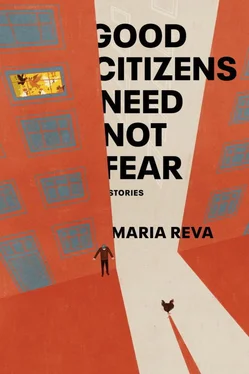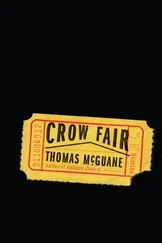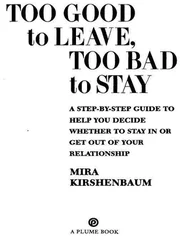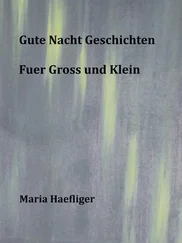Maria Reva - Good Citizens Need Not Fear - Stories
Здесь есть возможность читать онлайн «Maria Reva - Good Citizens Need Not Fear - Stories» весь текст электронной книги совершенно бесплатно (целиком полную версию без сокращений). В некоторых случаях можно слушать аудио, скачать через торрент в формате fb2 и присутствует краткое содержание. Город: New York, Год выпуска: 2020, ISBN: 2020, Издательство: Doubleday, Жанр: Современная проза, humor_satire, на английском языке. Описание произведения, (предисловие) а так же отзывы посетителей доступны на портале библиотеки ЛибКат.
- Название:Good Citizens Need Not Fear: Stories
- Автор:
- Издательство:Doubleday
- Жанр:
- Год:2020
- Город:New York
- ISBN:978-0-38554-529-7
- Рейтинг книги:3 / 5. Голосов: 1
-
Избранное:Добавить в избранное
- Отзывы:
-
Ваша оценка:
- 60
- 1
- 2
- 3
- 4
- 5
Good Citizens Need Not Fear: Stories: краткое содержание, описание и аннотация
Предлагаем к чтению аннотацию, описание, краткое содержание или предисловие (зависит от того, что написал сам автор книги «Good Citizens Need Not Fear: Stories»). Если вы не нашли необходимую информацию о книге — напишите в комментариях, мы постараемся отыскать её.
Good Citizens Need Not Fear: Stories — читать онлайн бесплатно полную книгу (весь текст) целиком
Ниже представлен текст книги, разбитый по страницам. Система сохранения места последней прочитанной страницы, позволяет с удобством читать онлайн бесплатно книгу «Good Citizens Need Not Fear: Stories», без необходимости каждый раз заново искать на чём Вы остановились. Поставьте закладку, и сможете в любой момент перейти на страницу, на которой закончили чтение.
Интервал:
Закладка:
A figure in a white uniform and mask stood before me, pointing a gleaming rapier at my chest. The figure looked like a human-size replica of the fencing trophies I had seen inside the glass display in Suite 76.
“Close the door.” The voice behind the mask was calm, level, and belonged to Milena Markivna.
I tried to keep calm as well, but my hand shook when it reached for the handle. I closed the door without turning away from her, keeping my eyes on the rapier. The ornate, patinated silver of its hilt suggested the weapon had been unearthed from another century.
“Down on the floor. On your knees.”
I had not imagined our meeting would be like this, but did as I was told. I inquired about the utility of having my ankles bound by rope and Milena Markivna explained it was to prevent me from running away before she was done. I assured her I wouldn’t think to run from such an important occasion and she, in turn, assured me she would skewer my heart onto one of my floating ribs if I tried. Before she stuffed a rag inside my mouth, I told her I had been waiting for this moment since I was a child, and she replied that she had been waiting for it since she was a child as well. I told her I was ready.
She said, “I’m ready, too.”
I do not know how much time passed with me kneeling, head bowed, as Milena Markivna stood over me.
I tried to utter a word of encouragement, perhaps even mention my admiration for the canvas cap with the golden star on its front, but of course I couldn’t speak through the rag in my mouth. All I could do was breathe in the pickled smell of the fabric.
She knelt down in front of me, one hand on the hilt of the rapier, its tip still quivering at my chest. With the other hand she took off her mask. Hair clung to her forehead, moist with sweat. I searched her face for approval or disappointment but it was closed to me, as if she were wearing a mask under the one she had just removed. I wondered how this would all look if a stranger barged through the door: she almost mad and I almost murdered.
At last Milena Markivna stabbed the rapier into the floor, which made me cry out, and said there was really no hurry. She brought over a stout candle that had been burning on the table and dipped my fingers into the liquid wax, one by one, as she named her relatives who had been executed, one by one, thirty years ago. The burning was sharp at first—although I dared not cry out or make another sound—but soon felt like ice. Milena seemed calmer after this. She removed the rag from my mouth, unlaced her boots, set her bare feet on top of them, and gave me a series of instructions. As I bowed my head and enveloped her warm toes in my mouth—they had a fermented taste, not unpleasant, like rising dough—she reminded me how she hated me. I removed my lips from the mound of her ankle long enough to tell her that we were not so different, she and I; that I, too, had grown up alone, even though my solitude would end soon. As she picked up a second candle and began to tip it over my scalp, she asked how it would end. Barely able to speak now, I told her that it would end when she inducted me into the Honor Guard and I would go to Moscow and see my family again. She laughed as if I had told a joke. My head pulsed with pain; tears blurred my vision. The smell that greeted me was of singed pig flesh, sickening when I realized it was my own. Milena Markivna set the candle down and asked how I knew of my family’s whereabouts. I said it was what I had been told. As she slid her fingers along the blade of the rapier, she said the neighbor who had taken her in had promised that her family had gone to a better place, too, but never specified where or explained why they never wrote. The darkness of the night filtered in through the cracks of the shack and into my mind, and I began thinking of things I did not like to think about—of my mother and father and where they really might be. Milena Markivna wrapped her hand around the hilt of the rapier again and told me to take off my coat and shirt and lie facedown on the floor.
As I did so, one thought knocked against the next, like dominoes:
There was a possibility I was not, at present, being recruited.
If not, there was no Honor Guard waiting for me.
If not, my parents’ rank did not matter.
If not, my parents did not have rank.
If not, Mother was not in the Guard.
If not, they were not in Moscow.
The blade dragged from my tailbone up the thin skin of my spine, searing my mind clean. I screamed into my mouth so that no one would hear. When the blade reached between my shoulders it became warm, and from its point a sweet numbness spread through my arms. I thought of my father with his bleeding hands, understood that queer smile. My head spun and the walls began to undulate. My voice came hoarsely. “How do you know what happened to your family?”
After a moment she said, “They disappeared. That’s how I know.”
“They could be anywhere.”
“Do you believe that?”
“Yes.” My body shook against the damp floorboards. “No.”
It was when I welcomed the blade that it lifted from my skin. I felt a tug between my ankles, then a loosening. She had cut the rope.
“You can go.”
“You’re not done.”
“No,” she said, but still she pushed my shirt and coat toward me with her foot. I lay limp, spent. Through the window I could see the glow of the town flicker back on. I remembered why I had come to the dacha, but could not rouse myself to bring up the letter. I found I did not care about it much myself. I would be the one who would have to issue an apology to my superior tomorrow, giving an explanation for failing to complete my task. I would write it. My superior would read it. I would be dismissed. What next? I would stop by a news kiosk on my way home, search my pockets for the correct change. If I did not have it, a voice behind me might ask if someone has a kopek for the man. Surely enough, someone would.
Before leaving, I asked Milena Markivna, “What was the joke your husband told?”
“Oh.” She said, “******************************************************? ***************************.”
“All this trouble for that?”
It was the first time I saw her smile. “I know. It’s not even funny.”
BONE MUSIC
The first time Smena’s neighbor knocked on her door, she asked to borrow cloves. The woman stood in Smena’s doorway, clutching a canvas sack to her chest. Her diminutive frame barely reached the latch. “I’ll bring the cloves back,” she promised. “You can reuse them up to three times.”
This neighbor, Smena knew, associated with the building’s benchers. The woman never sat with them but did spend a good deal of time standing beside them, cracking sunflower seeds, no doubt gossiping, and Smena would often hear the metallic clang of her laughter through the bedroom window. Smena had placed the woman in her mid-sixties, around Smena’s age, but up close her wet lips and bright caramel eyes made her look younger. Her cropped hair, dyed bright red, reminded Smena of the state-made cherry jam she used to see in stores.
She did not let the neighbor in, but made sure to leave a crack between the door and its frame so as not to shut it in the woman’s face—word got around if you were rude, especially to a bencher or bencher affiliate. Smena rummaged in her kitchen drawers for the cloves, then continued the search in her bathroom cabinet, which contained the kitchen overflow. There, the cloves rattled inside a newspaper pouch; they’d lost their peppery tang.
Smena stepped out of the bathroom and blurted “Oi.” The neighbor was sitting in her kitchen. The woman had taken off her clogs, and a grayish middle toe poked through a hole in one of her socks.
Читать дальшеИнтервал:
Закладка:
Похожие книги на «Good Citizens Need Not Fear: Stories»
Представляем Вашему вниманию похожие книги на «Good Citizens Need Not Fear: Stories» списком для выбора. Мы отобрали схожую по названию и смыслу литературу в надежде предоставить читателям больше вариантов отыскать новые, интересные, ещё непрочитанные произведения.
Обсуждение, отзывы о книге «Good Citizens Need Not Fear: Stories» и просто собственные мнения читателей. Оставьте ваши комментарии, напишите, что Вы думаете о произведении, его смысле или главных героях. Укажите что конкретно понравилось, а что нет, и почему Вы так считаете.












